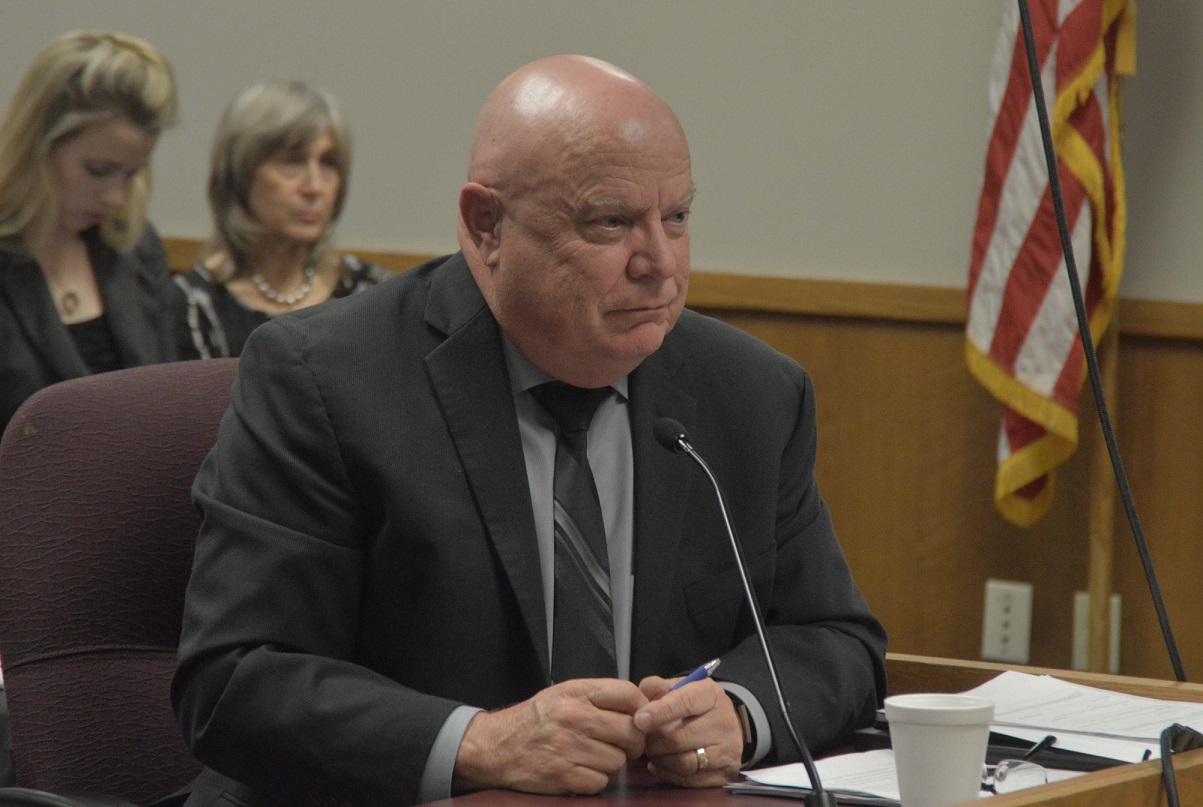State lawmakers have heard passionate testimony while being asked to decide what steps should be taken before life-sustaining treatment of a child is ended.

Some are telling state lawmakers state law should require parents’ consent before such treatments can end. Others are urging the opposite. Both say the humane, compassionate, and complete care of children hangs in the balance.
House Bill 1361, known as Simon’s Law, would require written permission from a parent or legal guardian of a patient under 18 years old before a do-not-resuscitate order can be issued for that patient.
The House Committee on Children and Families heard from the parents of Simon Crosier that he died at three months old in a hospital that had a “futility policy,” and after doctors put a DNR order on him without their knowledge.
“Then we got the medical records after he died and the DNR was still there even though we were told it had been removed,” said Scott Crosier, Simon’s father. “We had told them … my crying words to my doctors and to the medical staff and to anybody that would hear me is, ‘We will not expedite his demise. I want you to treat him like he is a healthy child and has conditions, so you get him healthy so that we can try and get him better and if nothing else extend his life so we can have a Christmas together.’ He died December 3, 2010.”
The committee also heard from Kim and Paul Kosednar, whose 2-year-old son Elias died of interstitial lung disease. They say they were involved with doctors in every decision about the care for their son, and they oppose Simon’s law.
“All this journey was done without any form of us ever knowing a futility clause or staring at a DNR. We used our knowledge to present our goals and wishes for Elias with our specialty team and this would change daily; sometimes hourly,” said Kim Kosednar. “Again, parents of terminally ill children have to keep evaluating the stance of, ‘How far are you willing to go to keep trying?’ Love is very strong and it is very binding and it is so much more complicated than just a piece of paper.”
Several medical professionals told the committee the story of Simon’s family is not common and urged lawmakers not to base state policy on it.
Doctor Sarah Younger, a Columbia neonatologist and leader of a palliative care team, said, “I’m so just unbelievably shaken by the testimony from Simon’s father because no parent should ever go through that, ever. That was abhorrent to me.”
Younger said requiring a parent’s written permission for a cessation of their child’s life-sustaining care would take away her ability to ease parents’ burden of making such a decision.
“When you put the onus on a parent of having to sign a piece of paper, basically the child’s death warrant is how they often see it,” said Younger. “Forcing them to sign that piece of paper is just really inhumane when someone’s at that point.”
Alissa Johnson with Concerned Women for America told lawmakers about children with mental and physical disabilities who were adopted by her husband’s parents. She said doctors told her in-laws life-sustaining care shouldn’t be given to those children, but those children are now in their teens and twenties.
The sponsor of HB 1361, Independence Republican Bill Kidd, told the committee what happened to Simon and his family was not a unique case. He said Simon’s Law is written to give a voice to children who are not terminally ill.
Under HB 1361, in cases in which parents do not agree on whether to give permission for a termination of care one parent can petition a court to consider the matter. HB 1361’s requirements would not apply if life-sustaining care is deemed “medically inappropriate.”
The committee has not voted on HB 1361. Last year the House voted 117-22 to amend Simon’s Law to Senate Bill 50, but the language was removed by the Senate.